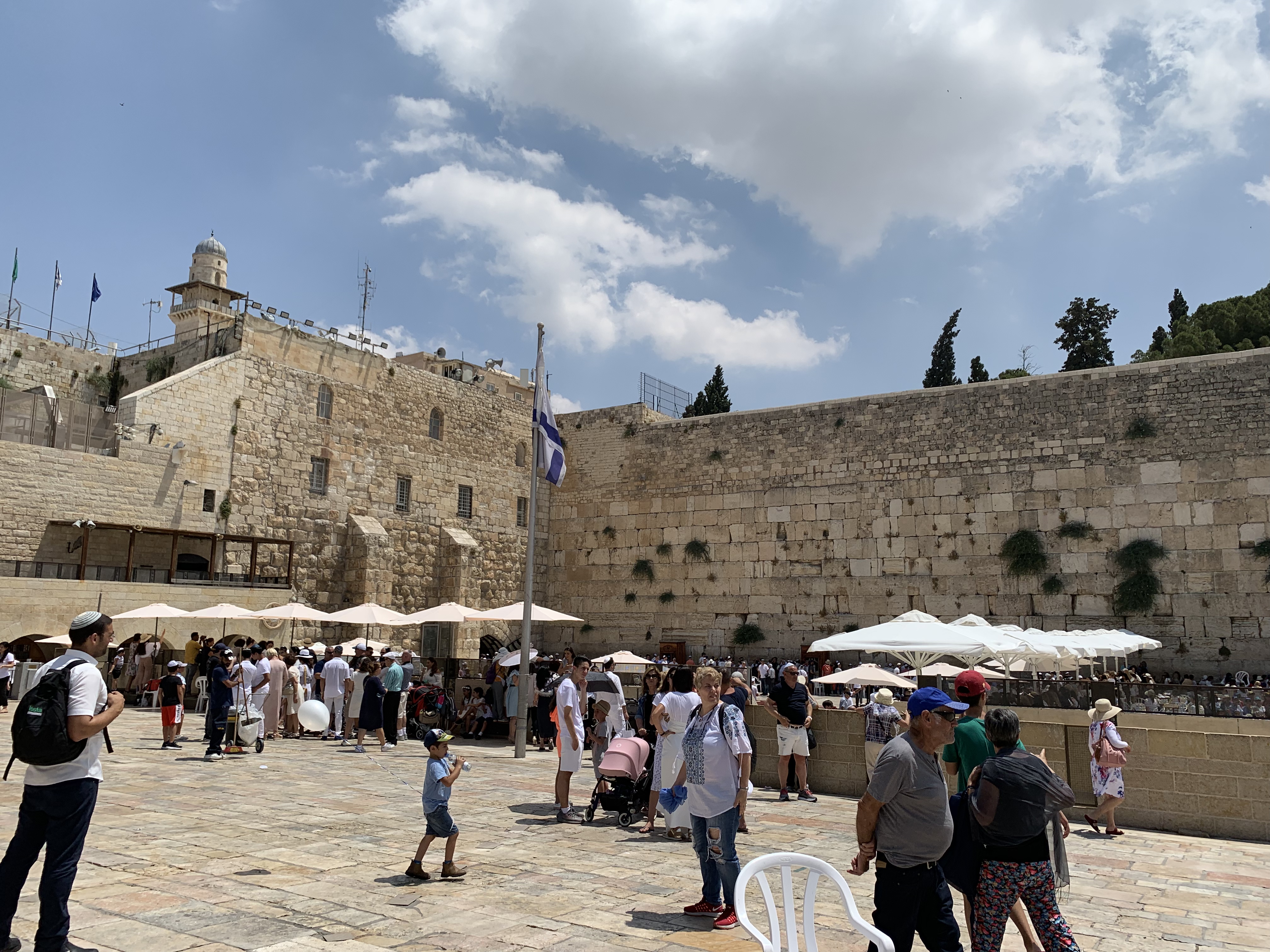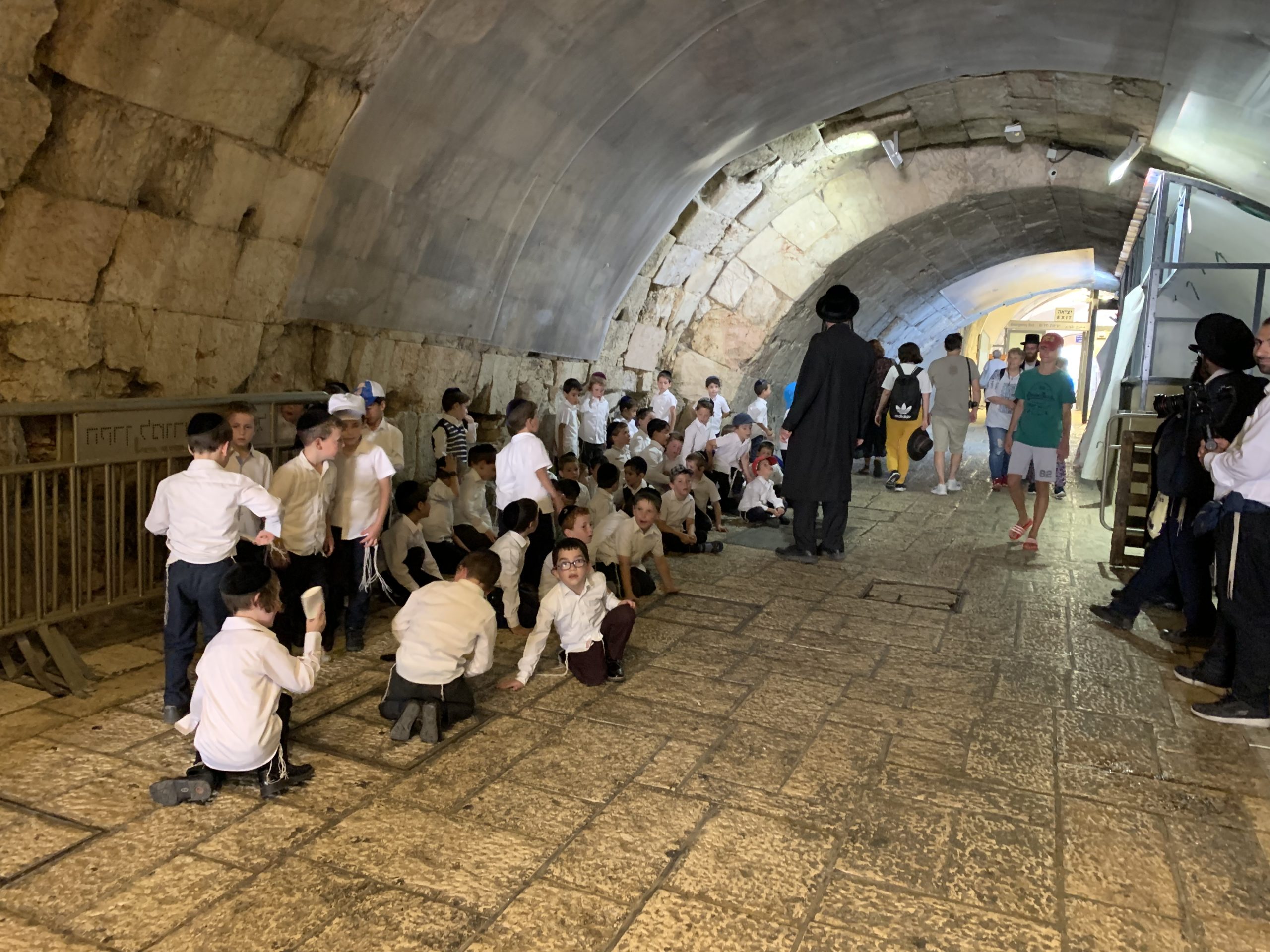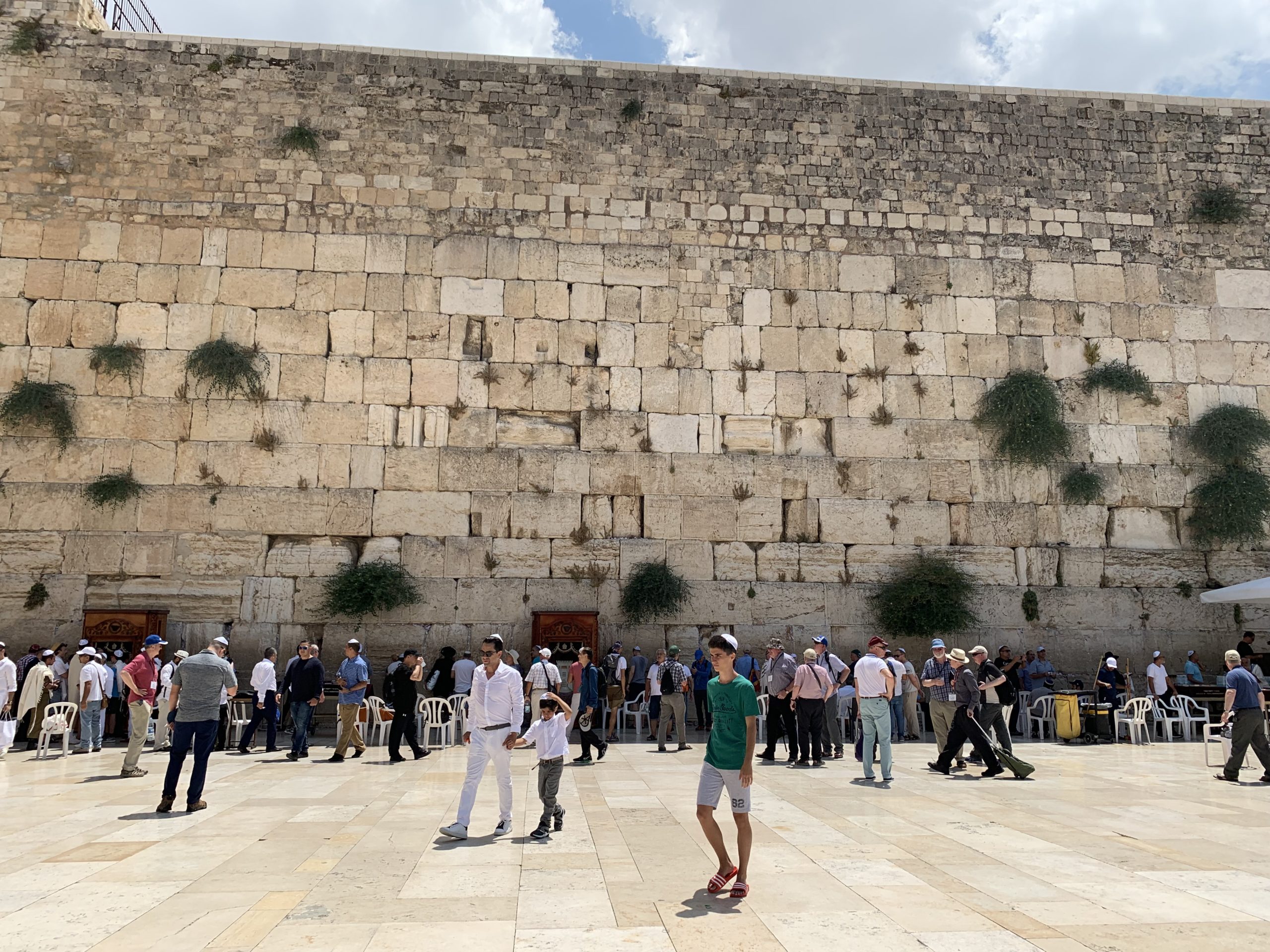Holy Land for Jews
Jews commonly refer to the Land of Israel as “The Holy Land” (Hebrew: אֶרֶץ הַקוֹדֵשׁ Eretz HaKodesh). However, the Tanakh explicitly refers to it as “holy land” in only one passage.[8] The term “holy land” is further used twice in the deuterocanonical books.[9][10] The holiness of the Land of Israel is generally implied in the Tanakh by the Land being given to the Israelites by God, that is, it is the “promised land”, an integral part of God’s covenant. In the Torah, many mitzvot commanded to the Israelites can only be performed in the Land of Israel,[11] which serves to differentiate it from other lands. For example, in the Land of Israel, “no land shall be sold permanently” (Lev 25:23). Shmita is only observed with respect to the Land of Israel, and the observance of many holy days is different, as an extra day is observed in the Jewish diaspora.
According to Eliezer Schweid:
The uniqueness of the Land of Israel is…’geo-theological’ and not merely climatic. This is the land which faces the entrance of the spiritual world, that sphere of existence that lies beyond the physical world known to us through our senses. This is the key to the land’s unique status with regard to prophecy and prayer, and also with regard to the commandments.[12]
From the perspective of the 1906 Jewish Encyclopedia, the holiness of Israel had been concentrated since the sixteenth century, especially for burial, in the “Four Holy Cities”: Jerusalem, Hebron, Safed and Tiberias – as Judaism’s holiest cities. Jerusalem, as the site of the Temple, is considered especially significant.[13] Sacred burials are still undertaken for diaspora Jews who wish to lie buried in the holy soil of Israel.[14]
According to Jewish tradition, Jerusalem is Mount Moriah, the location of the binding of Isaac. The Hebrew Bible mentions the name “Jerusalem” 669 times, often because many mitzvot can only be performed within its environs. The name “Zion”, which usually refers to Jerusalem, but sometimes the Land of Israel, appears in the Hebrew Bible 154 times.
The Talmud mentions the religious duty of populating Israel.[15] So significant in Judaism is the act of purchasing land in Israel, the Talmud allows for the lifting of certain religious restrictions of Sabbath observance to further its acquisition and settlement.[16] Rabbi Johanan said that “Whoever walks four cubits in [the Land of Israel] is guaranteed entrance to the World to Come”.[17][18] A story says that when R. Eleazar b. Shammua’ and R. Johanan HaSandlar left Israel to study from R. Judah ben Bathyra, they only managed to reach Sidon when “the thought of the sanctity of Palestine overcame their resolution, and they shed tears, rent their garments, and turned back”.[18] Due to the Jewish population being concentrated in Israel, emigration was generally prevented, which resulted in a limiting of the amount of space available for Jewish learning. However, after suffering persecutions in Israel for centuries after the destruction of the Temple, Rabbis who had found it very difficult to retain their position moved to Babylon, which offered them better protection. Many Jews wanted Israel to be the place where they died, in order to be buried there. The sage Rabbi Anan said “To be buried in Israel is like being buried under the altar.”[5][6][7] The saying “His land will absolve His people” implies that burial in Israel will cause one to be absolved of all one’s sins.
From <https://en.wikipedia.org/wiki/Holy_Land>
Promised Land
The Promised Land (Hebrew: הארץ המובטחת) “The Land” is the Arabic equivalent of the Hebrew word “Eretz,” which usually appears in the form “Eretz Yisrael,” meaning “Land of Israel.” It is “the land of the Lord” (Hosea 9:3), and it is the land that God takes care of (Deuteronomy 11:12), then it is the chosen land, and Zion, which the Lord inhabits, and the holy land (Zechariah 2:12), which is more holy than any other land because of its connection by the chosen people. And it came in the Talmud: (Dan 11:16). It is also “the beautiful land” (Daniel 11:16).
The Jews believe that it is the land that God promised to his prophet Jacob (Israel). The promise, according to the sayings of the books of the Jews, was initially to Abraham, and the covenant was renewed after that to his son Isaac, and to Jacob, son of Isaac and Abraham’s grandson. The Promised Land was assigned to their children, and it was described in terms of the lands from the Nile to the Euphrates.







